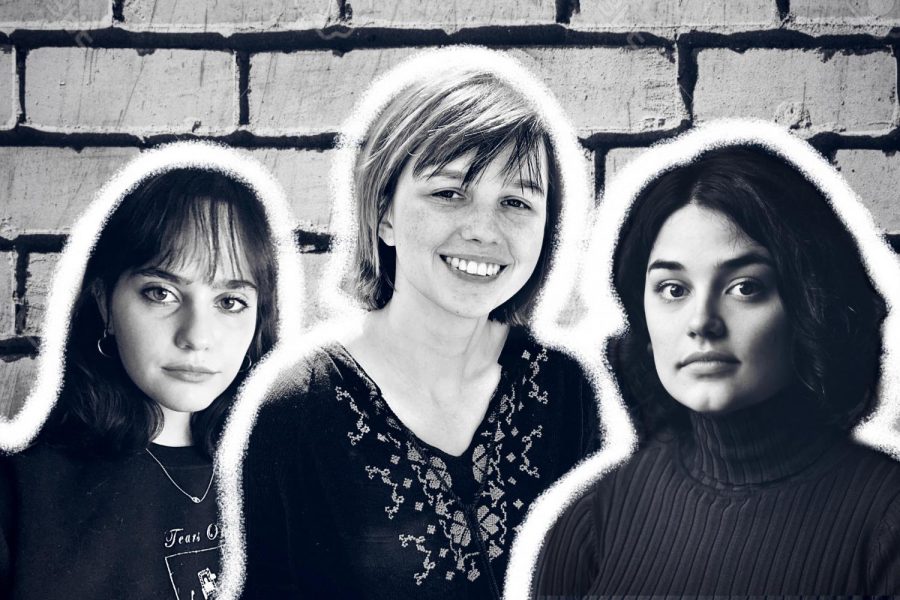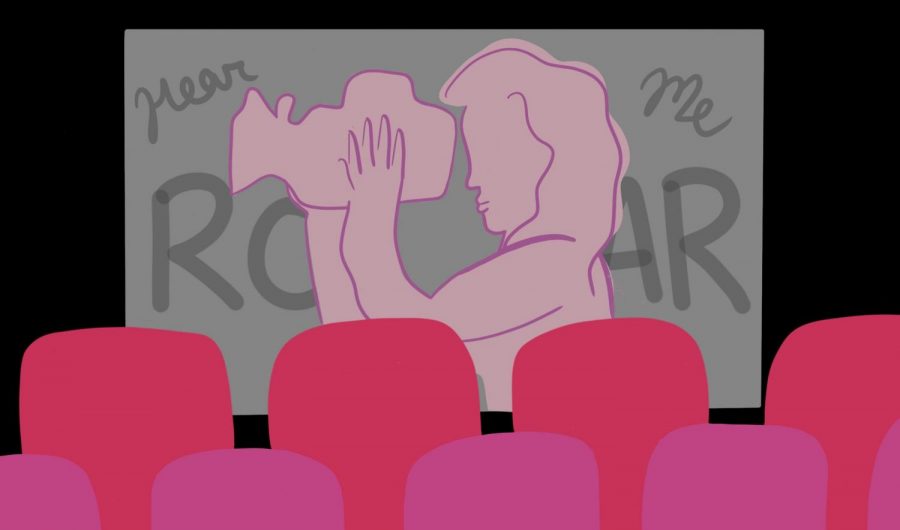
“I think we all deserve a place at the table.”
Words spoken by Maddie Schumacher, a Tisch Film and TV senior and rising independent producer, reflecting on her experience in Tisch and specifically commenting on the weight of gender discrimination that leaks onto student film sets and the lack of female-identifying voices at the forefront. In an industry where male voices are the overwhelming majority, Schumacher understands how crucial it is for female voices to bring female characters to life.
For Schumacher, film is a form of education, and controlling the direction of that education is power.
Film sets are of the same academic importance as any traditional classroom for Film and TV students. In fact, students learn even more from the hands-on practice of their craft than a sit-down lecture. Additionally, professors leave the students to both independently crew and cast their own films, therefore allowing students the opportunity to mimic the ways of the professional world.
Film and television students in the program have the privilege of harnessing and building on their craft independently. Especially for tasks related to handling lighting and camera equipment, Schumacher has found herself on the wrong end of unsolicited advice.
Schumacher recounts how it isn’t unusual for her to be offered assistance in completing a task such as lifting large equipment by those who think she needs it, even when she doesn’t ask for assistance.
“If I need help with this, I would ask you instead of just having you come over and lift it for me,” Schumacher said.
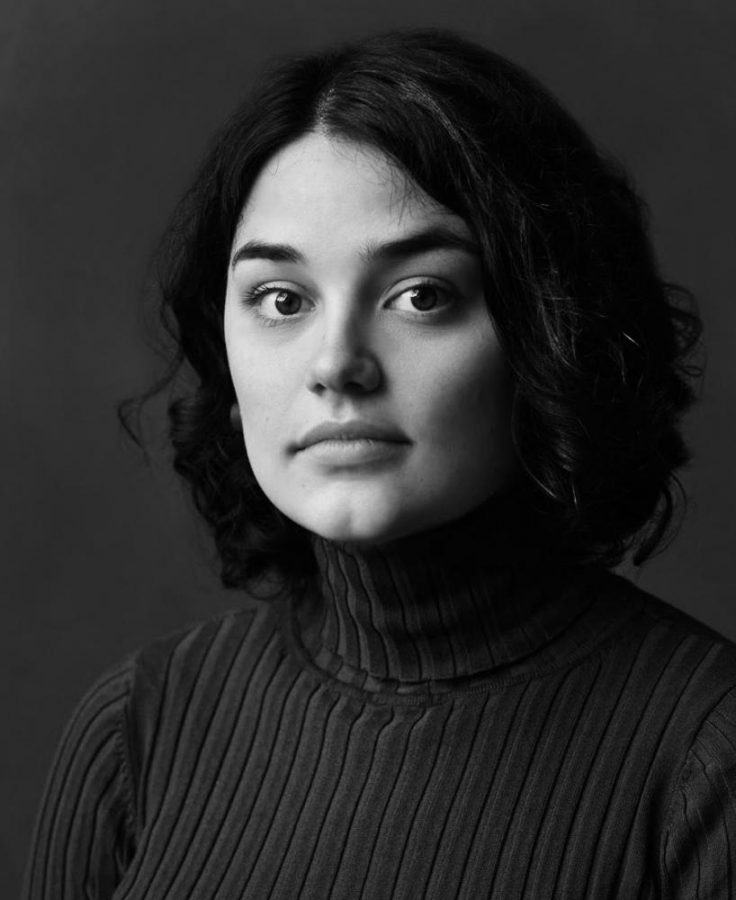
Although such incidents aren’t outside of the norm, Schumacher finds it frustrating to feel as though she had a “help me” sign on her back, possibly related to her gender and presentation. After all, the point of in-class exercises is to prepare for on-set scenarios, and Schumacher knew that this quick judgement on her physical and technical performance was taking away from her learning.
Across the Atlantic Ocean, Tisch senior Zoey Schilling encountered a similar situation. Schilling, who’s finishing studying to become a director of photography, had received acceptance into Tisch’s 35 MM In Prague program in Spring 2019. She studied in the Czech Republic’s critically acclaimed Film and TV School of the Academy of Performing Arts in Prague (FAMU), expecting to leave the program with a short film and life-changing experience under her belt. Unfortunately, some of her professors had a habit of allocating jobs on set based on sex.
“My semester was around seven women and three men, and they still were like ‘the women shouldn’t be lifting heavy equipment,’” Schilling said.
Considering she’d been carrying the weight of the patriarchy her entire life, Schilling felt she could handle it. The film department exposes all students to standard industry equipment training for an average of five hours in one session, yet the female majority did nothing to guarantee a lack of enforced gender roles, nor combat the professor’s sexism.
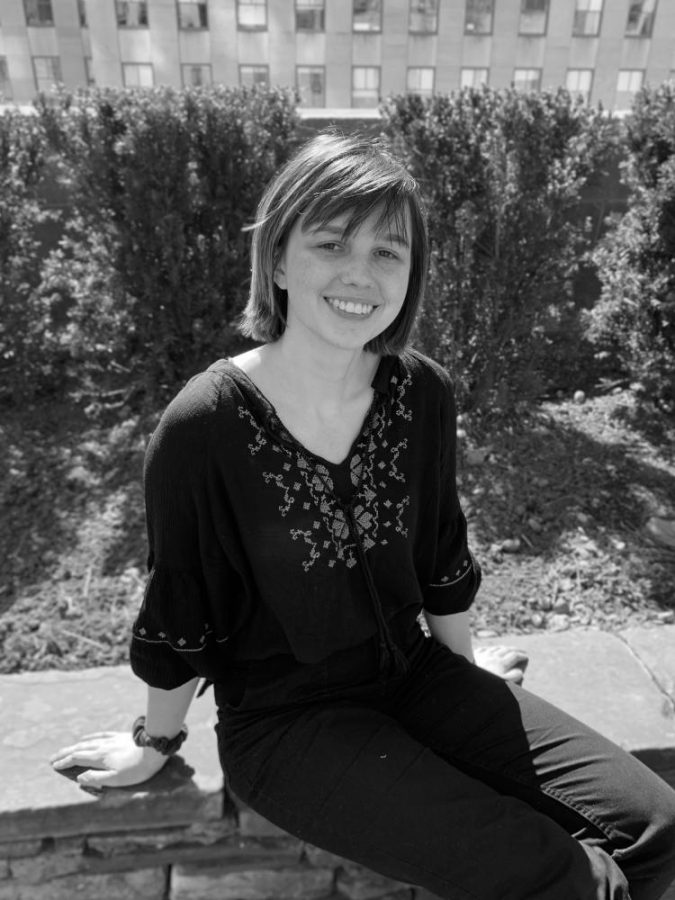
At the end of the semester, Schilling and a few of her classmates spoke with an NYU Prague faculty member to discuss their thoughts on the program.
“[The faculty member] very much wanted to support and advocate for us,” Schilling explained. “But she also said something along the lines of ‘You have to remember, I’m a woman too.’ It was part of the culture that she wasn’t taken as seriously as her male colleagues, which was discouraging to hear.”
With the way the industry functions, Schilling was quite used to this misogyny as a prospective DP.
Schilling knows female DPs are scarce in the professional world. According to her, an estimated 97% of pilots are shot by men, with men making up the majority of technical departments such as grip and electric or camera. Arriving at NYU with zero-experience in the film world, she found it tough to serve her first year’s required hours as a production assistant on student film sets while only seeing men in the camera department. Years later, as Schilling pursues her interest in cinematography and seeks out opportunities on set pertaining to the camera department, little has changed around her.
“My male friends who direct typically always choose male DPs, which is fine, they have a good working relationship,” Schilling said. “But I feel like I’ve only been offered opportunities by other women, and that can be frustrating.”
Tisch sophomore Marianna Kaimakliotis shares Schilling’s sentiment. Kailmakliotis spent a predominant amount of her time on set within the art department and always felt confused about her male peers’ treatment of her. Blatant disrespect coupled with patriarchal gender roles created hostile working environments, and Kaimakliotis noticed that it wasn’t a question of if she was disrespected on set. It was the question of why.
“Do they hate me because I’m a woman or because they’re an overall disrespectful person?” Kaimakliotis said.
She believes this kind of misogynistic dissociation from her male peers was “systematically allowed.” She noticed instances of microaggression piling up and felt as though she could not speak up.
“You don’t want to be the one causing the scene when a lot of people experience way more severe cases, like getting overlooked for funding or being put in more traditional female positions like production design or art,” Kaimakliotis said.
Despite thoroughly enjoying her roles in the art department, Kaimakliotis wishes she would receive more acknowledgement for her camera and editing work. Unfortunately, with a naturally competitive system for receiving roles on set, students tend to accept whatever they can get. This makes it challenging for female students to branch out into male-dominated positions, with offers few and far between. The emphasis placed on smooth collaboration and classroom etiquette also contribute to the growing amount of unheard sexism on film sets within the student world of film and television.
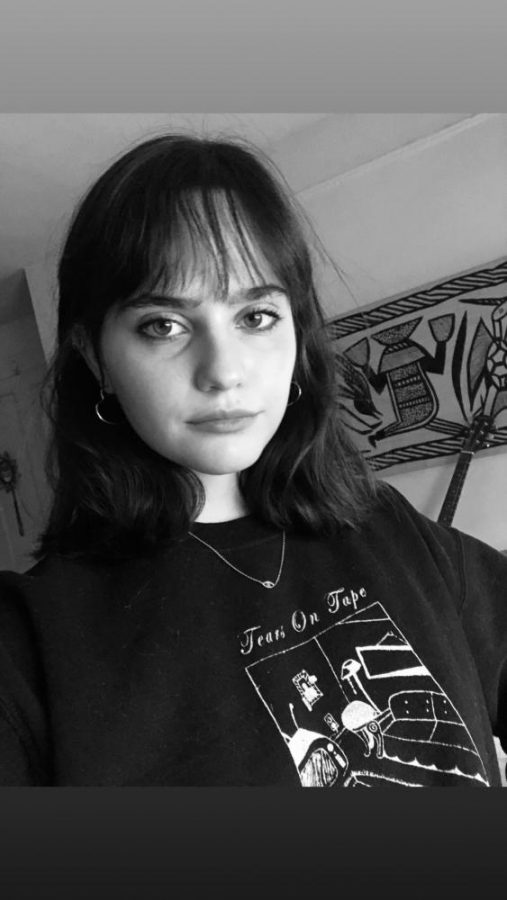
Schilling’s experience in her first year was similar, and she felt limited by her status as a member of the female minority approaching the camera department.
“I slipped into [art] because that’s where I was seeing all the other women,” Schilling said. “That’s what came naturally as a visual person because I soon thought that I’d be better in the art department than camera.”
The male domination of the film industry plays a heavy role in the collective atmosphere and the extent of industry gate-keeping, particularly on executives with the power to hire. With men controlling the hiring process, as well as which voices get marketed to the general public, men’s best interests will come first and the cycle of men hiring men will continue.
This kind of gate-keeping was a large part of what prompted Schilling to join Schumacher in leading the Fusion Film Festival.
This annual student-run film festival at Tisch has a sole mission to promote the voices and talents of female-identifying students and artists. Created and run by students since 2003 and an Allied Partner of the Sundance Institute’s Women’s Initiative, Fusion’s guidelines for submission specify a female-identifying director, cinematographer, screenwriter or editor for a number of categories, Undergraduate through Graduate Film and Television. Although the film school’s program is equally made up of both women and men, natural inequalities still exist in an industry founded for and dominated by white men.
“I mean, the Oscars every year are like men, men, men, men, men,” Schilling said. “So it’s like, oh, wow, a film festival that highlights women in the industry. Like, we exist? And we’re also talented and skilled? It’s not a level playing field and to have an organization that acknowledges that and celebrates women in the industry was really cool to me.”
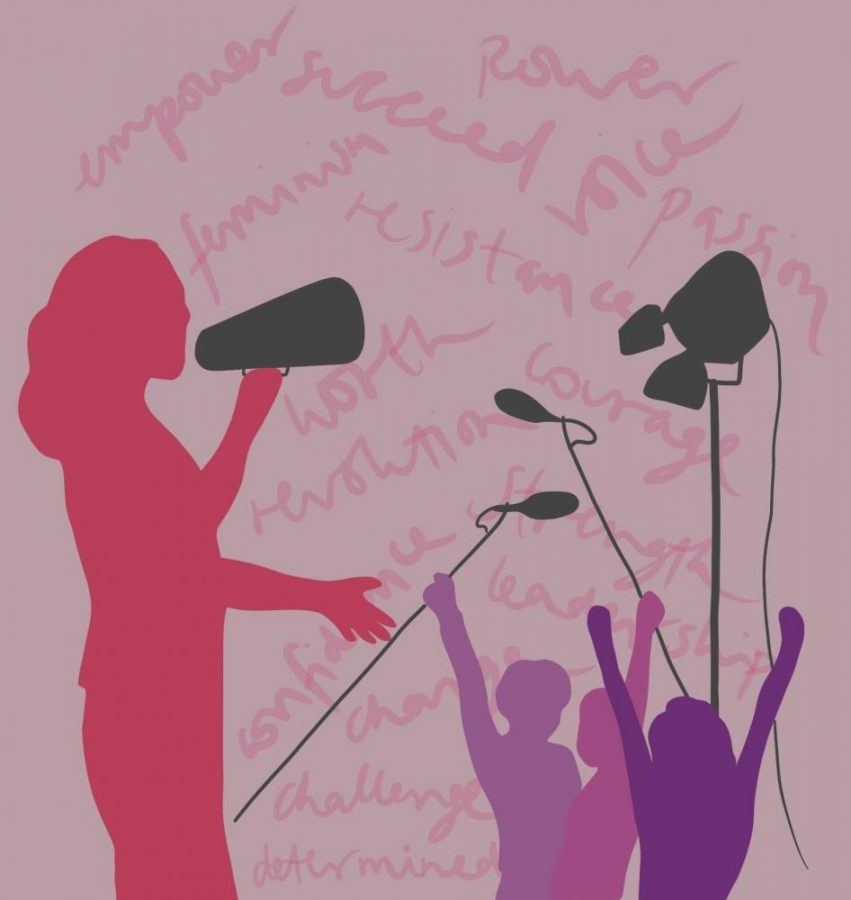
Likewise, in an effort to empower her fellow female-identifying artists at Tisch, Schumacher sought to use her skills as an award-winning film producer to become a crucial leader on the festival’s team, serving as co-head of Alumni Relations.
For Schumacher, Fusion existed as an established community with the conviction to celebrate women in the industry and, at the very minimum, “just talk about what they f-cking love about film and TV.” Not to mention, with all work being produced and curated by female-identifying students, support for the festival becomes deeply personal.
“I think there’s so many times where you sit in a writing class, and someone has written about a female character,” Schumacher said. “Maybe there’s some good aspects about this character, but maybe there’s some stereotypes. Representation is really important, and I think experience behind it is really important.”
With more women supporting each other to carve out their space in film, women-only spaces can inspire some to pursue projects outside of their comfort zone. Giving women the opportunity to try is what makes Fusion so important to its leadership team, including Schilling and Schumacher.
“I’ve had friends who never really thought they could be a cinematographer and are now my DP on a bunch of friends’ projects,” Schumacher said. “And, they’re women too, which is awesome. I think there needs to be more of an energy like ‘You can do things if you set your mind out to them.’”
The festival was designed to place particular emphasis on female-led projects, since for film students and professionals alike, the word “director” feels inherently masculine. The female- identifying students in this article have discussed feeling as if they’re looking into the film department with a subconscious filter provided by the male gaze.
Everyone seems to be asking, as the term film bros gets constantly tossed around, who’s going to be the next Todd Phillips or Quentin Tarantino? While female creators want to occupy the same creative space with the same renown as these men, right now they cannot, given the cyclic nature of the industry’s patriarchy. Not to mention, there’s a yearning for female-identifying artists to be admired as their own and not compared to the male predecessors of their craft.
Originally planned for early April, the festival was cancelled due to COVID-19, thus removing the opportunity to build up the voices of female-identifying students who aren’t used to feeling represented in their professional fields. Instead, Schumacher and other female-identifying students continue to face moments when they remember that sexism still exists, even in an academic environment advertised to be extremely liberal and progressive.
As microaggressions, institutionalized sexism and generations of male-domination come into play, the voices of women in film are constantly shoved into predetermined boxes or silenced. Hardly enough women win awards or out-profit the box office. Even less of these few are women of color. In participating in the Fusion Film Festival, Schumacher and Schilling intended to use the privilege of going to the top film institution in the nation to empower the voices of female artists who also witness the inequalities throughout the industry that they themselves hope to enter.
Schumacher notes that aside from the sexism rampant in the industry, Tisch has put her in a place to achieve what she wants to achieve, and the festival could’ve brought the journey full circle. But even with the cancellation, the organizers hope female-identifying students will remember Fusion’s mission of showcasing female talent beyond societal and classroom expectations. Schumacher’s most recent role as co-producer, under her team’s production company Arachnid Films, stars two strong female-identifying leads, Stefanie Scott (“A.N.T Farm”, “Insidious: Chapter 3”) and Isabelle Fuhrman (“Orphan”, “Hunger Games”). The film is a mythological horror feature titled “The Last Thing Mary Saw” and it’s currently in post-production.
“There’s times where I’m just not taken seriously, and that’s by students and faculty too,” Schumacher said. “There’s a lot of people — both male and female professors — who have told me, you can’t do it. And I’m like, what are you talking about? I’m doing it.”
Special thanks to all the women who participated in the interview process: Madeleine Schumacher, Zoey Schilling, Marianna Kaimakliotis and Sofia Bara.
Email Chandler Crump at [email protected] for more on her article.


























































































































































